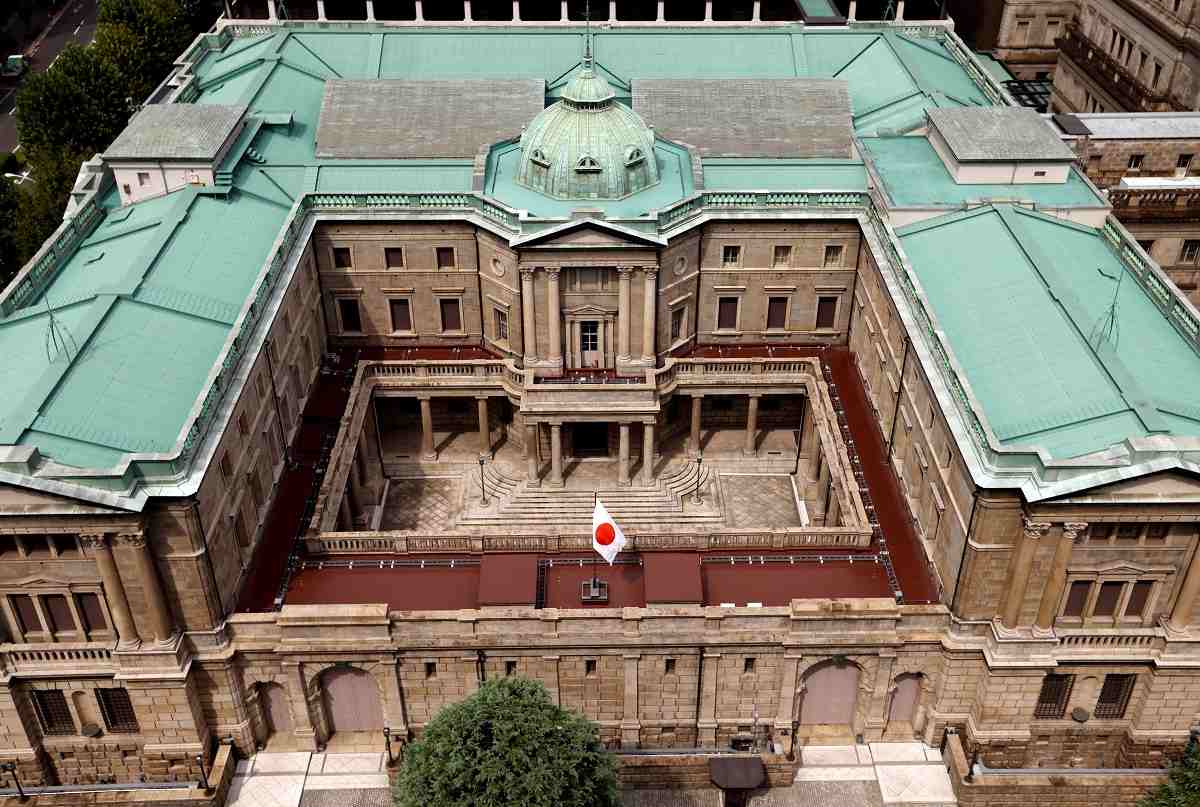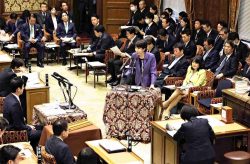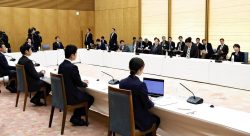
Japanese national flag is hoisted atop the headquarters of Bank of Japan in Tokyo, Japan September 20, 2023.
11:46 JST, December 26, 2023
TOKYO (Reuters) – Bank of Japan Governor Kazuo Ueda must change his communication style that is confusing markets into believing an exit from ultra-loose monetary policy is imminent, former BOJ board member Takako Masai told Reuters.
Less than a year into the job, Ueda has already wrong-footed markets twice in comments about the policy outlook including on Dec. 7, when he elaborated on what the BOJ could do after ending its negative interest rate policy.
Bond yields and the yen surged on the comments, made in parliament, by fueling market expectations the BOJ could end negative interest rates as early as in December. The BOJ made no change this month to its ultra-loose policy and dovish guidance.
Ueda’s hawkish remarks in parliament contrasted with recent comments by several board members warning against any premature debate of an exit, casting doubt on whether the governor was properly representing the board’s view in public, Masai said in an interview on Monday.
“As chair of the policy meetings, the governor shouldn’t speak beyond what has been decided at the board,” said Masai, who served at the BOJ’s nine-member board from 2016 to 2021.
“The sequence of the BOJ’s recent communication is confusing and may narrow its options” on the exit timing by prompting traders to price in the chance of imminent action, Masai said.
With inflation exceeding the BOJ’s 2% target for well over a year, many market players expect the central bank to lift short-term rates out of negative territory next year, with some betting on action as early as January.
In a country that has experienced decades of stagnant price and wage growth, creating a positive wage-inflation cycle and making sure it stays will likely take time, Masai said.
Ending ultra-loose policy soon would deviate from the government’s focus on achieving durable wage growth, and ensuring Japan does not revert to deflation, she added.
The government has yet to officially declare that Japan is permanently out of deflation. Prime Minister Fumio Kishida has made a full exit from deflation his policy priority, and announced a range of steps to prod firms to boost wages.
“It’s hard to see the BOJ change policy as quickly as markets expect, such as in January or April, when taking into account the (dovish) comments of each board member and the government’s assessment of the economy,” she said.
The BOJ board holds a policy-setting meeting eight times a year. The governor serves as chair of each meeting, and explains the board’s decision at a post-meeting news conference.
Masai is currently chairperson at private think tank SBI Financial and Economic Research Institute.
Top Articles in News Services
-

Survey Shows False Election Info Perceived as True
-

Hong Kong Ex-Publisher Jimmy Lai’s Sentence Raises International Outcry as China Defends It
-

Japan’s Nikkei Stock Average Touches 58,000 as Yen, Jgbs Rally on Election Fallout (UPDATE 1)
-

Japan’s Nikkei Stock Average Falls as US-Iran Tensions Unsettle Investors (UPDATE 1)
-

Japan’s Nikkei Stock Average Rises on Tech Rally and Takaichi’s Spending Hopes (UPDATE 1)
JN ACCESS RANKING
-

Producer Behind Pop Group XG Arrested for Cocaine Possession
-

Japan PM Takaichi’s Cabinet Resigns en Masse
-

Man Infected with Measles Reportedly Dined at Restaurant in Tokyo Station
-

Israeli Ambassador to Japan Speaks about Japan’s Role in the Reconstruction of Gaza
-

Videos Plagiarized, Reposted with False Subtitles Claiming ‘Ryukyu Belongs to China’; Anti-China False Information Also Posted in Japan



























